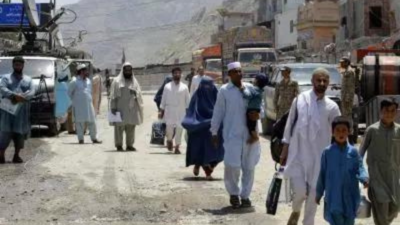
ISLAMABAD: Surging terror and extortions have endangered public safety in Pakistan’s restive northwestern Khyber Pakhtunkhwa province, where militants in several districts run a parallel shadow administration.
The southern districts of the province have almost become no-go areas even for law-enforcers. In the evening, militants are seen patrolling streets and setting up checkpoints in Bannu, North and South Waziristan, Tank, Lakki Marwat, and Dera Ismail Khan.
While these districts remain at mercy of militants from evening to morning, well-off people in other districts of the province frequently receive threatening WhatsApp texts and letters from Pakistani Taliban – or Tehreek-e-Taliban Pakistan (TTP) – with demands to pay or face attacks. The ones who refuse to pay ransom are often targeted with grenade attacks at their homes, shops and warehouses, apparently to show the group was serious about its threats.
Faisal Khan, a lawyer in in Charsadda district, told TOI that he had got a threatening WhatsApp text earlier this month from an Afghanistan number with a demand to pay $50,000 (Pak Rs 1.4cr). Khan reported the threats to the police and also went to high-ranking officers to request protection and assistance. He claimed he was cautioned by “allies in the govt” that he “should not count” on them to keep him safe.
Shahzaib, another person in the same neighbourhood who had received a similar text on TTP’s letterhead last month, has paid after negotiating a deal through intermediaries. He eventually paid a reduced part of the $50,000 the militants initially demanded. “TTP is demanding extortion from everyone they think can pay. Most, if not all, wealthy individuals have already paid.”
Police sources said the main hurdle is tracking down extortionists. In the last two years, at least 1,600 Afghan phone numbers and 387 illegal gateways were used for the extortion calls. “Despite the rising threat, the issue has yet to attract national attention,” a senior police official said.
